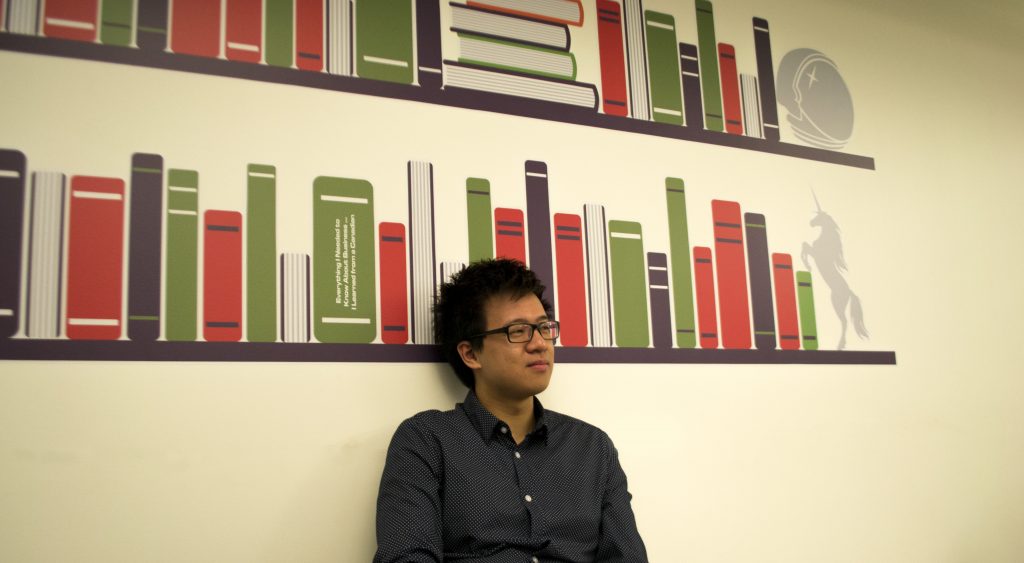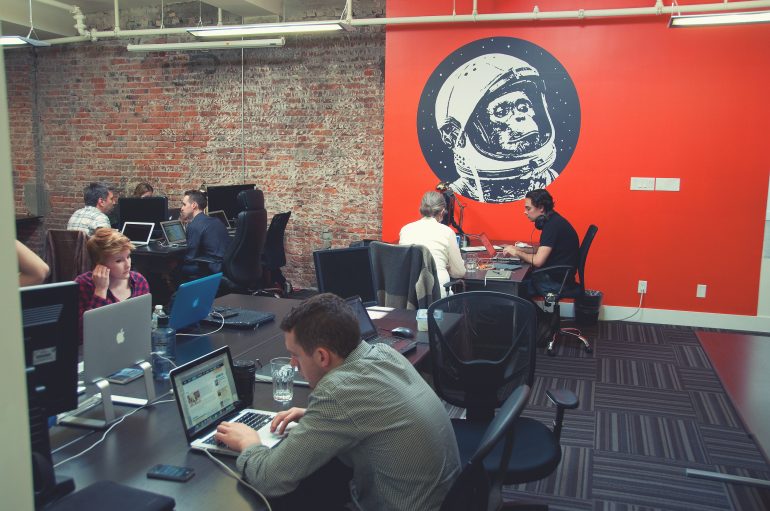You’ve got your big idea (or at least, you think you do) for something that’s going to disrupt the marketplace. You’re seeing interest from investors (or maybe your favorite aunt who’s got money to burn – read Ryan Holmes’ thoughts on that). You’ve even got a prototype (OK, a web app that kind of, sort of works like it’s supposed to). Where do you go from here?
We chatted with some of the passionate founders and rising stars coming out of the Vancouver tech hub at Launch Academy and HIGHLINE (disclosure: with whom we share co-working space) to see how they’re turning back-of-the-napkin dreams into startup reality.
Ambition plus motivation equals traction
Henry Bee had an idea: “bring the best that technology has to offer to the world of investing” to give just about anyone access to advice that the wealthiest have had for decades. The boyish-faced 30-year old CEO of Cassia Research has the skills to make it happen; with a background in both engineering and finance, he’s the co-author of Minimum Correlation Algorithm and formerly headed up development of trading strategies for CTA and hedge fund clients. Right now, he’s working with his co-founder to get funding and grow their team by four or five people to launch the next version of their product.
“It’s not about a hard sell. It’s about finding out what problem the customer is experiencing, so you can consult with them and solve the problem.”
– Henry Bee,
Cassia Research
Selling doesn’t come naturally to Bee, he admits – so he’s had to work at it. The challenge got a lot easier to face when he realized a key truth. “It’s not about a hard sell,” he said. “It’s about finding out what problem the customer is experiencing, so you can consult with them and solve the problem. Once you’ve identified the pain point, you show them how your solution is going to solve it.”
Entrepreneurship isn’t for everyone. But while Bee’s in-demand skills would make him an asset in many highly-compensated firms, he explained that his background put “fire in his belly” to start his own company.
“I had to grow up fast,” Bee said. “I’m part of an immigrant family and we came over here when I was 11 or 12. My father couldn’t get a job here with his credentials from back home, so I remember him studying to get an electrical engineering masters degree at university so he could get the work while I was in high school. He pumped out straight A’s and got the degree, which was an inspiration for me – but he pass away soon after. I wanted to carry on that torch. He never had the opportunity to work here – so here’s my opportunity to make him proud.”
Get (and stay) lean
Latero Labs co-founders Sunny To and Derek Yau have gone through a lot of pivots and validation cycles over the life of their company – but that’s just part of the process.
About three years back, the tech-minded duo were doing Ruby on Rails web development together and realized they could build out their own products. “We took on some consulting contracts to fund ourselves and then realized that the contracts were taking up all of our time,” To explained. So they had to make a leap of faith – backed up by real data.
Latero Labs has learned the hard way that the Lean method can save startups a lot of time and trouble.
“We started experimenting to get proof of concept on some of our ideas,” he said. One of the first was a product that would help landlords rent their properties easier. They saw no really good tools in that sector and thought they could build a product that would streamline a fairly onerous process.
“We followed a Lean process, with cold-calling and other methods to reach people to validate the idea,” To said. “We built a landing page and a prototype of a form a landlord would give an applicant to kickstart the process.” But after doing their homework, the pair realized it wasn’t going to work. “Landlords have a problem – but they’re too cheap to pay for a solution. The pain level for this problem is like a wave that passes. It’s painful when they’re trying to find someone, but in between tenants, they have no pain for three or four years.”
They pivoted, targeting property managers serving hundreds of apartments. At that scale, the product could find it’s home – but once more, the research showed that the product would hit a dead end. “We talked to 40 or 50 property managers to get a good reading. We soon found that while some needed a complete solution (not just a tool to solve one area of their business) others were highly specialized in how they did business. There was no easy way to monetize immediately.” That didn’t mesh with the pair’s business philosophy of wanting to use funding to grow, as opposed to getting funding and then finding the customer’s pain.
Still in the process of validating concepts, Latero Labs has learned the hard way that the Lean method can save startups a lot of time and trouble. “When we first started out, we were working from a basement and knew nothing about entrepreneurship,” To said. We had a few ideas and youthful enthusiasm – and we tried just about every non-Lean method you can imagine. We spent too much of our time imagining ideas and not enough actually talking to people.”
After learning about Lean methodology and winning a hackathon in Seattle, going on to pitch angel investors in San Francisco, they became much more methodological. “Our top advice for entrepreneurs: if you think you’re Lean, you can always be Lean-er. When you’re just so addicted to building things, it’s hard to step back. But take a minute, find out who you are really building for — because you’re just going to have to rebuild it, otherwise.”

Hustle your way to be the next big thing
Edwin Tsang is the 17-year old founder of Storyfund, a crowdfunding platform for students to finance their education – and whether that is a success or not, he’s certainly part of The Next Big Thing. He discovered this month that his application (against stiff competition) to get into a startup accelerator program had gone through – and now he’s bracing for the next steps. “In the short term, that means, keep networking, keep hustling. You never know who will be that one person who is the key to your success in the next 5 years.”
Tsang joined the world of startups in grade 9, when he ran a business coaching video gamers over Skype. More recently, he joined Vancouver-based Payso, essentially by wearing down the founders’ resistance through a persistent charm offensive, literally showing up at their office many times until they would give him a job. When Payso got funding to hire, Tsang came aboard to do business development.
Early-stage startup founders should do entrepreneurship, not just learn about it, from a young age, Tsang said. “Schools have junior achievement programs or entrepreneurship programs. Join it, or if they don’t have one at your school, do your research and find the program elsewhere.”
His second tip? Time management can be a tough skill to master, particularly when you’re young, but it’s also essential. “You have the passion now. You have the energy. Use it!”


